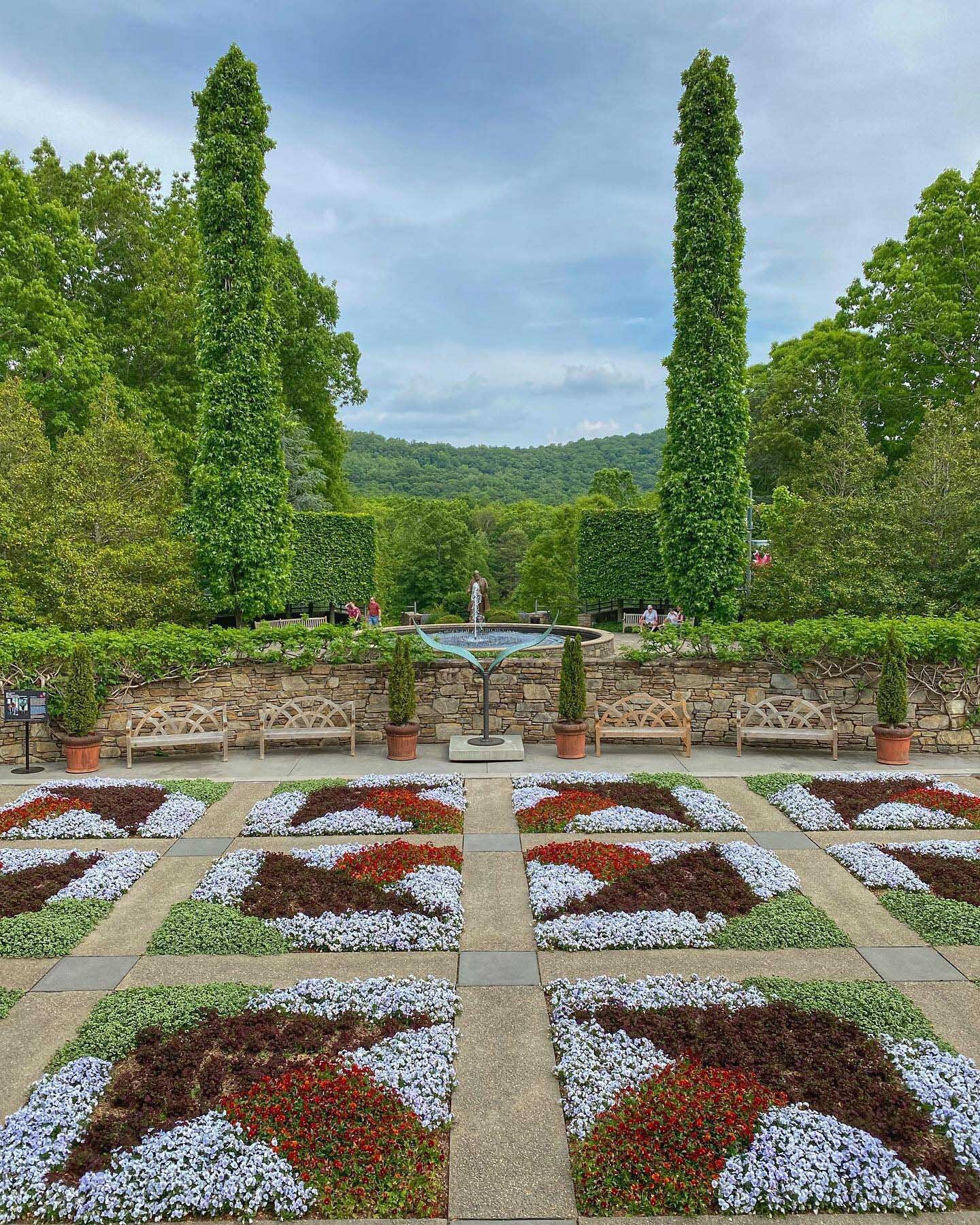Known for its openness and creativity, Asheville not only invests in communities of color and LGBTQ initiatives, but is the kind of inclusive place where everyone, those with disabilities, families, and people of all ages, feels at home too. Many businesses and attractions embrace the Americans With Disabilities Act (ADA), which was adopted by the federal government in 1992 and prohibits discrimination against disabled people in everyday situations such as work, shopping, or going out to eat. Asheville’s leadership has done an excellent job of making the city as accessible as possible and is always working on more ways to improve. Here, we visit some of the highlights.
The Asheville Art Museum

The Asheville Art Museum
Photo by @ivana.j.mayo
The Asheville Art Museum has a wide, eclectic variety of exhibits ranging from pottery, stained glass, furniture, and textiles to a myriad of visual artists and styles, many of which tell the story of Appalachia. And it matches its cultural offerings with a commitment to accessibility.
While the museum doesn’t have a dedicated parking area itself, it can accommodate drop-offs and pickups on its plaza. Several parking decks with designated spaces for disability permits and spaces for oversize vehicles are located nearby, as well as metered and free street parking. A limited number of adult-size and child-size manual wheelchairs are available on a first-come, first-serve basis, and visitors may use manual or power wheelchairs or scooters and manually powered mobility vids such as walkers, crutches, and canes throughout the museum.
Page magnifiers are available for visitors with visual impairments; museum-produced videos in the galleries have captions to benefit guests with hearing impairments; and fidget devices and noise-canceling headphones are available for those with autism spectrum disorder or sensory sensitivity. ADA-certified service dogs are welcome.
The museum also hosts “Connections,” an arts-based program serving adults with mild to moderate memory loss and their care partners. Events typically include a guided gallery conversation and a related activity led by specially trained museum staff and volunteers.
The North Carolina Arboretum

The North Carolina Arboretum
Photo by @blairwdw
The North Carolina Arboretum contains 65 acres of cultivated gardens, trails, and pathways that delight the senses and encourage visitors to reconnect with nature in a peaceful setting. The site is home to native wildflower, pollinator, and formal gardens as well as its renowned Bonsai Exhibition Garden, which displays up to 50 bonsai specimens at any given time.
The Education Center, Baker Exhibit Center, and main garden areas are wheelchair-accessible, and the Arboretum offers wheelchairs for visitors to borrow at no charge. Service animals are allowed throughout the property, and the facility also provides a complimentary Caregiver’s Pass to those serving as helpers to a person with a disability.
Biltmore Estate
Biltmore, the private estate of George Vanderbilt (who famously canceled his trip on the Titanic one week before its maiden voyage), is one of Asheville’s most-visited attractions. The 250-room, French Renaissance-style castle sits on 8,000 acres of sculptured gardens and forested trails and includes a winery, several restaurants, a shopping complex, and private lodging.
The destination offers a wide range of services for guests with accessibility needs. Because the third floor of Biltmore House is inaccessible due to its historic architecture, the facility offers a reduced-price admission ticket for guests with mobility issues. Accessible parking and shuttles (all of which are ADA-accessible) for guests with mobility disabilities are available year-round.
Guests with vision impairments can use a complimentary audio guide to Biltmore House, while those with hearing loss can use a printed transcript of the audio guide or a complimentary Neckloop Telecoil Coupler. Printed transcripts of all Biltmore films shown on the estate are also available. Additionally, sign language interpreters are available any day of the week with advance notice.
The Walled Garden and Conservatory are ADA Accessible, as is Antler Village, the onsite entertainment area with a shopping area, farmyard, and playground.
Trails and parks

Yoga next to a waterfall is a one-of-a-kind experience for all levels that you can have outdoors in Asheville.
Photo by @namaste_in_nature
Asheville is known for its outdoor-friendly lifestyle and many of its trails and parks are accessible to both those with disabilities and families. Smooth, paved trails make it easier for wheelchairs, strollers, scooters, and those with mobility challenges to enjoy the healing power of the great outdoors.
Asheville has a growing greenway system that connects several parks and neighborhoods around town. The 2.8-mile French Broad River Greenway is a great spot for urban exploration, and the River Arts District—where you’ll find colorful murals, artist studios, independent galleries, and lively cafes—is just off the route. After a scenic tour along the riverside, stop in the District to grab a spot at New Belgium Brewing, which has spacious corridors and an outdoor seating area for primo people-watching. The Blue Ridge Parkway is also another excellent option for scenic mountain drives with several scenic waterfalls that can be viewed right from the road.
Accessible lodging options

The Cambria Hotel Downtown is a popular choice among families and others with special needs alike.
Photo by @welltraveledchild
While all hotels are required to provide ADA-accessible rooms, Cambria Hotel Downtown Asheville, Kimpton Hotel Arras (a dog-friendly property), Grand Bohemian Hotel Asheville (near Biltmore), and the opulent Omni Grove Park Inn—a favorite of Presidents and celebrities—are a few of the more distinctive lodging options. Or you could go to the Engadine Inn and Cabins, a retreat that sits just outside of Asheville at the foot of the Blue Ridge Mountains, and immerse yourself in the natural wonders of the area.








